
BitPay on the State of Bitcoin Merchant Adoption in Europe
August 24, 2014
UK Foreign Secretary Issues Stark Warning on Islamic State
August 24, 2014Up to 5,000 Britons hoping to volunteer at Rio 2016
By Brian Oliver
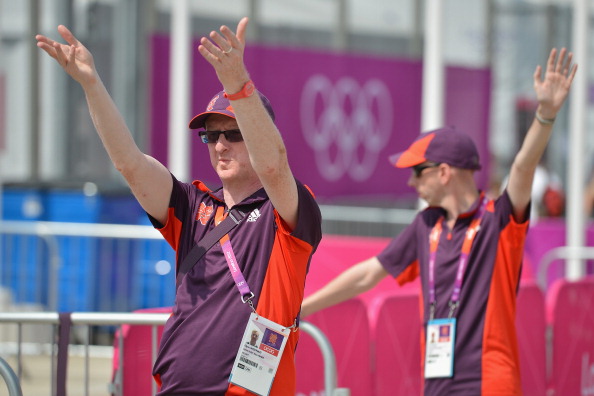 Britain’s army of big-Games volunteers, who helped to make such a roaring success of the London 2012 Olympics and Paralympics and this summer’s Commonwealth Games in Glasgow, are gearing up for an overseas operation in Rio de Janeiro.
Britain’s army of big-Games volunteers, who helped to make such a roaring success of the London 2012 Olympics and Paralympics and this summer’s Commonwealth Games in Glasgow, are gearing up for an overseas operation in Rio de Janeiro.
Registration for the Rio 2016 Olympic volunteering programme opens this week, and early indications are that as many as 5,000 Britons will go.
It will cost them their time and a good deal of money but that will not dampen their enthusiasm.
It could also mean that there will be more Olympic volunteers from Britain in Rio than there were England fans at their last, dismal, World Cup match in Brazil this summer.
“The best Olympics ever” was the general verdict on London’s hosting of the Games two years ago and the 70,000 Games Makers, chosen from 256,000 applicants, were one of the main reasons why.
“Volunteers are the lifeblood of any Olympics,” wrote the Chicago Tribune at the time, “but in London they have also been its heart.”
The same was true in Glasgow this summer when British volunteering again rose to the occasion.
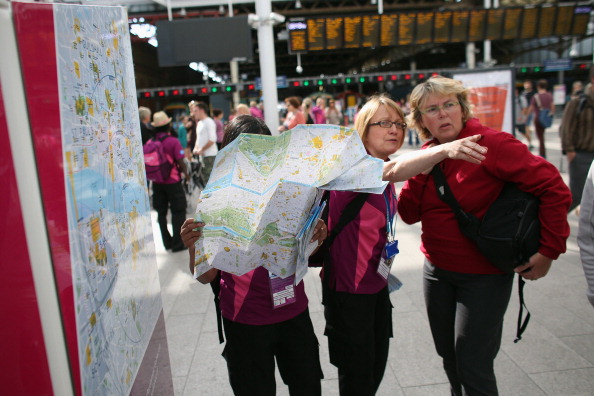 The 70,000 Games Makers were among the reasons why London 2012 earned the badge of “The best Olympics ever” ©Getty Images
The 70,000 Games Makers were among the reasons why London 2012 earned the badge of “The best Olympics ever” ©Getty Images
“The best Commonwealth Games in history” was the official verdict from the Commonwealth Games Federation, and this time 15,000 clyde-siders took many of the plaudits.
“They had rave reviews, and rightly so,” said Sir Craig Reedie, Britain’s representative on the International Olympic Committee executive.
“As the Games have got bigger over the years, one of the ways of handling that has been to ask for more and more people to help.
“Volunteering has become part of the whole ethos, the quality, of the Games.”
The Los Angeles Olympics in 1984, when helpers were first issued with uniforms, were hugely important in the growth of volunteering, which reached a new level at the Sydney 2000 Games.
On Thursday (August 28) the Rio 2016 volunteering programme will be launched.
Many Games Makers and clyde-siders have already pre-registered their interest and the numbers will soar when more information is released.
The Olympics has nowhere near the status in Brazil that it has in Western Europe, the United States and Asia, and the total number of gold medals won by Brazilians over the course of history is less than Britain won in London alone.
Add to that the lack of a volunteering culture in Brazilian society and it is easy to see why a Rio 2016 spokesman says, “We look forward to receiving international volunteers”.
“If I had to guess at a number, I’d say 3,000 to 5,000 from Britain will go to Rio,” said Ian Kershaw, who founded the website goingtorio.co.uk as soon as London 2012 was finished.
The Facebook page of his site already has more than 1,100 followers, before any details of volunteering in Brazil have been released.
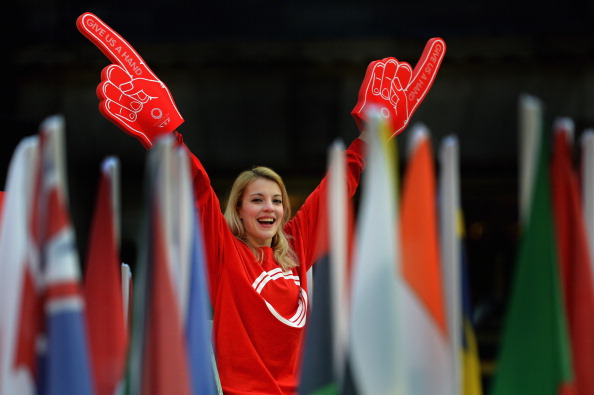 The Glasgow 2014 volunteer programme was also hugely successful ©Getty Images
The Glasgow 2014 volunteer programme was also hugely successful ©Getty Images
Kershaw, an account manager in the recruitment industry, worked in the Athletes’ Village at London 2012 and did not see a single minute of sport – but he still described his time as a volunteer as “probably the best four weeks of my life”.
“The atmosphere, the total positivity, people doing their absolute best under whatever circumstances were thrown at them…it was just fantastic,” he added.
“What people realised, when they worked at London 2012, was that it was not the once-in-a-lifetime experience it was advertised as.
“You can do it again and again.”
Hundreds of Games Makers went to Sochi to work at this year’s Winter Olympics, and many more returned to action in Glasgow.
Now they want to be in Rio, the popular destination for the next Games, even though the trip will cost them at least £2,500 ($4,100/€3,100) each, and probably a good deal more.
Kershaw said he would have volunteered wherever the next Olympics were held, though “the prospect of watching beach volleyball on the Copacabana is very enticing”.
Professor Simon Shibli, who has overseen two major research projects on sports volunteering at Sheffield Hallam University, also believes thousands will travel from Britain.
“It’s a significant exodus, but it wouldn’t surprise me at all if 5,000 went to Rio,” he said.
“Volunteering at big Games is a classic example of a form of work becoming serious leisure.
“The uniform and the laminated accreditation are seen as a badge of honour.”
There is an age gap in the army of volunteers, with roughly equal numbers of young people and over-50s, and far fewer aged 25-50.
Students see it as a useful experience and a worthwhile addition to their CV, while the older volunteers are often skilled managers and professionals who want to feel they are making a contribution, said Shibli.
With time and money more readily available to them, the older group will dominate in Rio.
“Do you get your own raw material and polish it, or do you take people who have experience, who have already volunteered at the Olympics?” said Shibli.
Rio will do both.
Volunteering is not a part of Brazilian culture and Christopher Gaffney, an American visiting professor at Universidade Federal Fluminense, in Rio, cannot foresee Games organisers recruiting the numbers they need from the Rio area. The total workforce of volunteers will be, as in London, 70,000.
“All those who are unemployed or under-employed, of which there are many, might volunteer but working people won’t have the time,” he explained.
“There’s not a lot of public sympathy for the Olympics here.
“The Olympics has no resonance in Brazil, it means very little.
“If you asked people in the street what Brazil’s most successful Olympic sport was they wouldn’t know.”
The answer is sailing.
Rio has “partnered up” with universities and with the language school EF, who will provide free tuition for one million Brazilians to learn a second language.
The official languages of the Olympics are English and French.
Everyone who applies to be a volunteer, plus all paid staff and contractors, as well as a number of schoolchildren will be given a one-year EF course.
The entire academic programme in schools and universities is suspended during the Games, in September 2016.
“The EF initiative probably will persuade students to volunteer,” said Gaffney, “as it will increase their value in the jobs market.
“But they won’t do it as a civic duty, or with a sense of responsibility for the collective.
“That doesn’t exist here.”
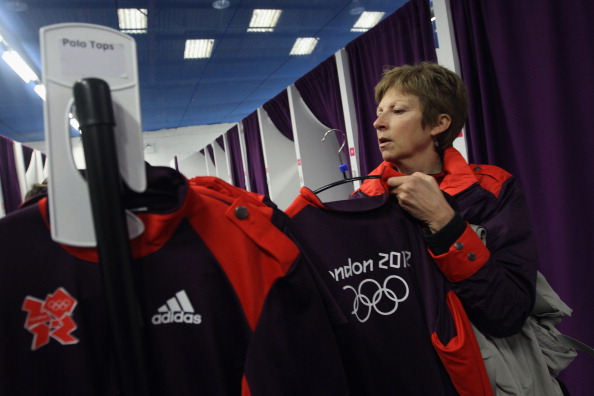 Tony Powell said volunteering is “very tribal” ©Getty Images
Tony Powell said volunteering is “very tribal” ©Getty Images
It sounds the opposite of Britain, which “would probably collapse without volunteering” in the view of Tony Powell, another who aims to be in Rio.
“I’ve been volunteering all my life,” said Powell, an information broker who worked in the news service and press departments in London and Glasgow respectively.
“I had a great time at both Games and I would have paid money to do those six days at the white-water canoeing in London, no question.
“It’s very tribal – the uniform is a sign of it.
“Time and again I met people who have volunteered at multiple Games.
“As someone in my early sixties, having the opportunity to be part of the event and the atmosphere is a wonderful, unbelievable feeling.
“Millions of young kids around the world will be inspired by watching the Games in Rio.”
Julie Miller, who also volunteered in London and Glasgow, used her skills as an NHS nurse by working in medical support.
She signed up as a Games Maker after picking up a flyer in McDonalds, who sponsored the volunteers in London, and says it “gave me such a confidence boost” that she is planning not only to go to Rio, but to Toronto, too, next year for the Pan-American Games.
“As a newly single woman, whose children had grown up, it made a big difference to my life,” said Miller.
“I had always wanted to help, to give something back.
“I met so many people I have kept in touch with, and as an individual woman I can travel to places with a sense of security when I volunteer.
“I wouldn’t go to Glasgow or Rio on holiday on my own.”
For more information about volunteering at the Rio 2016 Olympics click here from August 28.
Read the insidethegames Big Read on “the most dedicated volunteer in the world”, Rosemary Mula, here.
Contact the writer of this story at duncan.mackay@insidethegames.biz
Related stories
August 2014: The story of Rosemary Mula – the most dedicated volunteer in the world
August 2014: Rio 2016 set to open volunteer programme on August 28
January 2013: Search gets underway for 15,000 Glasgow 2014 volunteers
December 2012: London 2012 Games Makers honoured in Queen’s Diamond Jubilee Awards
September 2012: Prince Charles holds reception to thank London 2012 volunteers



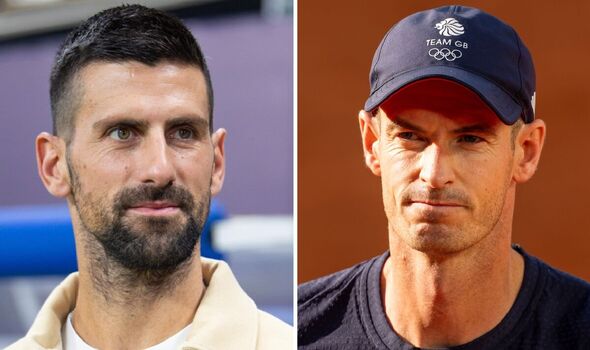
Luke Humphries comment about Luke Littler says it all after Players Championship glory
Read more